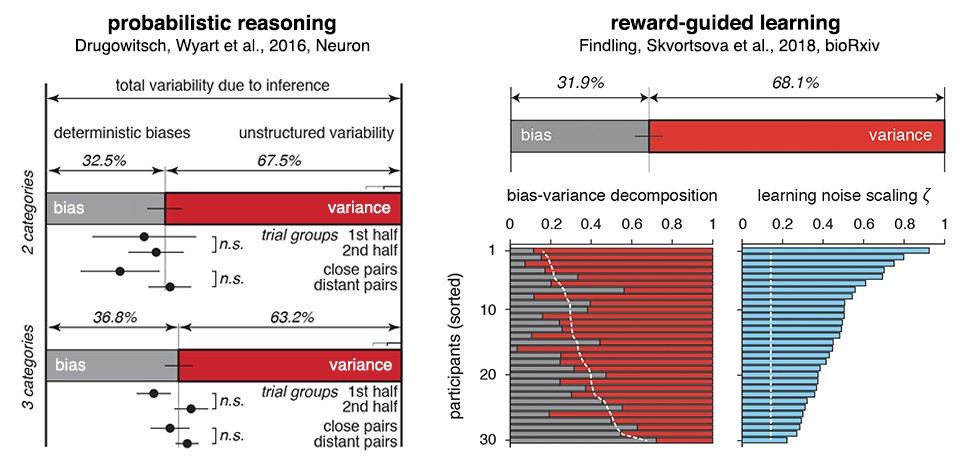
Cognitive (neuro)scientist at @Inserm and @Cognition_ENS, interested in how we make decisions (and why we make avoidable errors) in the face of uncertainty.
How to get URL link on X (Twitter) App

https://twitter.com/anne_churchland/status/1119307735512776707In doi.org/10.1016/j.neur…, using a similar categorization task in humans, fitted lapse rates are only about 1-2% and typically lose against lapse-free accounts. And rightly so, if subjects have understood that task rules *never* change (which mice haven’t). [2/9]


